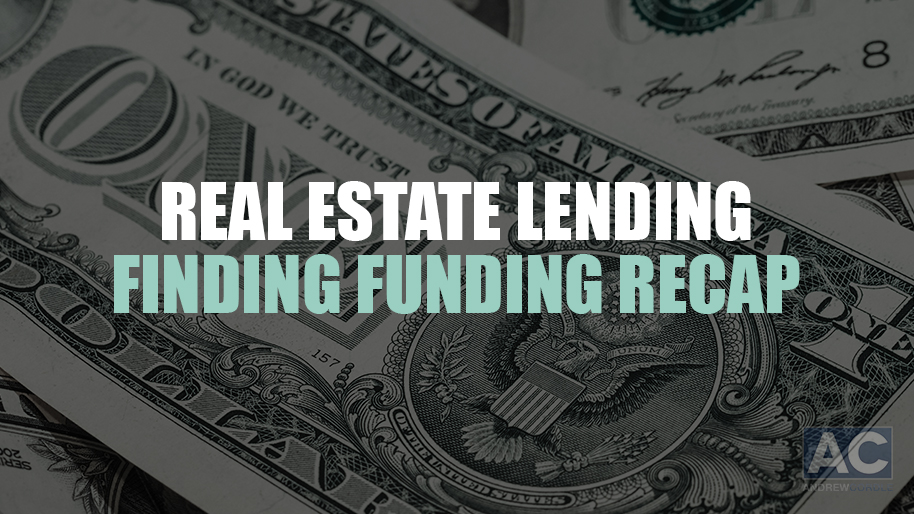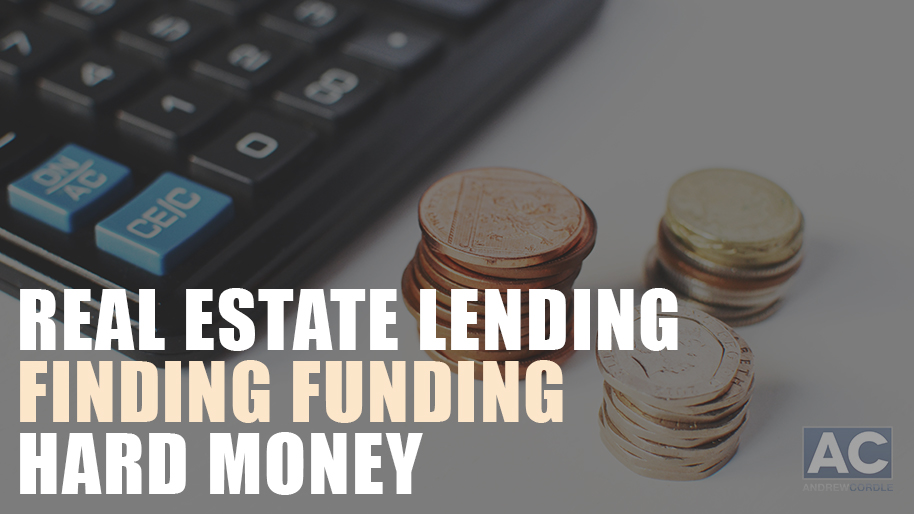
We’re on the back-end of our “Finding Funding” series and today I’m going to discuss my personal favorite avenue of funding. The Joint Venture Agreement, referred to in this article as a “JVA.” I use JVA agreements on the majority of my flips. It’s my favorite avenue of funding for my “buy, fix, sell” properties. This is because it means that there’s literally ZERO monies coming out of MY pocket. You might be wondering how that’s possible? I structure my JVA’s so that the lender pays 100% of out-of-pocket costs. He pays the earnest money, the purchase, the closing costs, insurance, utilities, all construction rehab costs…everything! I prefer doing JVA’s as it provides me the ability to do multiple concurrent deals at the same time without a lot of outgoing funds. For instance, I can do five JVA’s at the same time and not have it affect my pocketbook. There is literally zero out of pocket expenses. But if I were to do five HML (hard-money lender) deals at the same time, I would require a huge amount of upfront capital! I’d have to put up 20% for each house as a down payment on the loan. In addition, I’d have to pay all earnest monies, closing costs, insurance, utilities, the monthly payment, and don’t forget that I’d have to also front all of the construction funds! This would equate to hundreds of thousands of dollars, if not more. Obviously, with JVA’s, one can grow at a rapid pace without incurring all of the risk. It’s win-win! How does one structure a JVA? Well, there’s two ways to do this but In both scenarios, there is a JVA agreement in place: The JVA lender holds the title to the property – and I’m ok with this as long as we have a JVA in place. The JVA contract is between the lender and me and dictates that upon sale, all previous expenses are reimbursed and the remaining profits are divided per a previously agreed-upon split. The most common split is 50/50, but I have worked with JVA lenders who give me a 70/30 split! But I’ve never agreed to pay more than 50% of the profit to the lender. I (the investor) hold the title and the JVA lender takes first lien with the mortgage and note. At closing, an attorney or title company will record a mortgage and note for the property so that when the property is sold and before any monies are taken out, the mortgage gets paid off first. JVA lenders prefer experience so you should gain some before you attempt a JVA. It’s not likely for someone to loan you money without a proven and successful track record. The JVA lender absorbs the majority of the risk during a JVA flip. It’s a high risk yet high...
Read More »

As our Finding Funding journey comes to a close, I wanted to do a brief recap of the previous article discussions. Over the past several weeks, we’ve discussed several different funding avenues for real estate investors. As we end this series, I wanted to recap the different avenues of funding and where one can locate these lenders or lending options. Remember this important reminder: it’s critical that whatever information you bring to the potential lender is legit. Whatever it is that you can do to separate yourself from the competition, DO IT! So, where does one find all of these lending options? Hard Money Lenders – HML: Visit my website at www.andrewcordle.com/lender where my team spent countless hours locating and listing lenders in every single state. Our list of lenders is the most comprehensive list on the web that’s freely available for all real estate investors. Cash/Credit Card: This is established monies you already have or credit that you’ve built previously. If your credit score is a downfall, there are several companies out there that specialize in helping. They help both repair your credit and open doors to future lending options. For the best in the business, visit Pathway Financial at https://www.pathwayfinancial.org/ or by calling 1-877-72-FUNDS. Private Money Lenders – PML: As we discussed in previous blogs, PML’s are tricky to find. They’re usually people who are in your immediate circle of influence. Self-directed IRA/401k – SDIRA: There are many nationwide and local IRA/401k companies in your area. Research these companies as they often have local events where investors become clients or just to rub elbows, network, and build bridges with other investors of like-mind. As I type this article, my team and I are preparing to sponsor the 2014 Equity University Networking Conference in Orlando, FL, hosted by Equity Trust. I’m spending thousands of dollars to sponsor and attend this annual event in order to network. Maybe we’ll see you there next year?! Joint Venture Agreements – JVA: JVA’s are very popular and can be found in your circles of influence, local REIAs, business networking events, Meetup groups, etc. If you were looking for money, instead of attending events for rehabbers, wouldn’t it be wiser to do as I’ve done in the past and attend events for lenders? If there’s one hundred rehabbers and only one lender, the odds are in the lenders favor and they can be as selective as they want. However, if you attend a lending event where there are one hundred lenders and only a handful of rehabbers, who’s odds are favored now? Do you see my point? This is how I find such great lending opportunities. This October, I will be sponsoring another event just to locate more joint venture opportunities. I’ve attended these events for years and have purchased well over $5 million dollars in...
Read More »

Finding Funding Series – The Hard Money Lender During the series introduction, I listed five funding sources for every investor. In the introduction, I merely skimmed over the five funding options. However, we’ll be discussing each funding option in more detail, beginning today with “HML” or Hard Money Lending. A hard money lender is a very easy route for investors. Why? Because HML’s are in the business to loan YOU money! It’s how they make money. As I mentioned previously, any investor worth his salt uses or at a minimum, has access to all five lending sources that I listed in the series introduction. In my opinion, HML’s are the easiest way to access funding. This is especially important for inexperienced investors. These beginner investors have a tendency to become obsessed with finding the cheapest “private” money, meanwhile, there’s an HML right up the road who is in-business to loan you money! Sure, maybe his terms are not exactly what you want but remember, don’t step over a dollar to save a dime! Hard money doesn’t necessarily have to be your only source for funding but it should take priority as the easiest way to get funding for your first flip. I just so happen to be in the middle of several large flips. I am currently closing on a home with a $500,000 purchase price. Yes, my other flips use other sources of funding, but for this one, I needed a hard money lender because of the price. I am in no-way a beginner investor as I’ve spent over a decade in the industry – but I still use hard money lenders for certain situations. Especially situations in which the purchase price is a little higher and I need guaranteed approval. How does a hard money loan work? 1. An HML loans you funds to both purchase and rehab your investment. In most HML cases, one has to come to closing with roughly 10-20% down depending on the lender. 2. HML’s will give you the option of a six or twelve month plan. I recommend a twelve month plan. Six months can work if everything goes perfectly. But if things don’t go as planned and the home doesn’t sell, the HML can foreclose or charge additional points or interest. 3. HML’s make their money by charging you points/interest. One point equals 1% of the total loan. Interest will generally be anywhere between 12-18%. 4. HML’s typically do not charge a pre-payment penalty so one can pay off the loan amount at any time without being charged additional monies. 5. One will usually receive the rehabbing construction funds in several draws. These draws can be set-up in many different ways. For example, let’s say we have a $30,000 rehab project. In this case, one would typically set-up three separate...
Read More »










